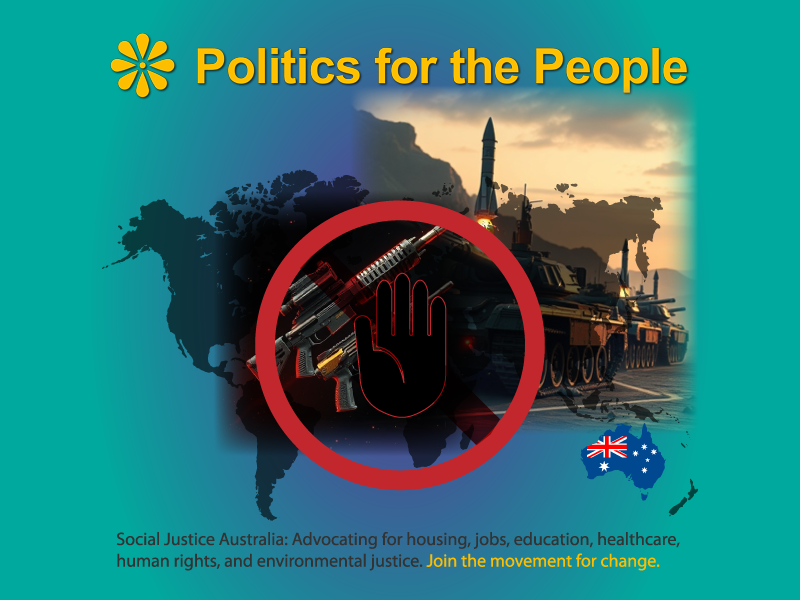Description
Explore the complexities of Australia’s role in Yemen, including influences from the US and Zionist lobby, and its broader implications.
Introduction: Australia’s Role in Yemen
Australia’s role in Yemen is driven by strategic alliances and internal political dynamics, presents a multidimensional scenario that intertwines global politics with national policies. This comprehensive analysis aims to unravel the multifaceted reasons behind Australia’s involvement, exploring how international alliances, domestic political factions, and lobbying efforts shape its foreign policy decisions, particularly in the context of the Yemen conflict.
The Influence of Right-Faction in Australian Politics
Understanding Factional Dynamics

The right-faction within the Australian Labor Party (ALP) significantly affects the nation’s political and policy landscape. This group’s influence is clear in its control over key decision-making processes within the party, including candidate nominations and leadership positions. The faction’s conservative approach often aligns with broader right-leaning policies on a global scale, particularly in foreign affairs, where it supports more aggressive military interventions.
Policy Impact and Legislative Agenda
The right-faction’s dominance in the ALP translates into substantial sway over the party’s stance on international issues, dictating the direction of Australia’s foreign and defence policies. For instance, the faction’s support for taking part in international military coalitions reflects its strategic intent to align Australia closely with Western allies, emphasizing the faction’s role in steering national policies towards these ends.
Australia’s Strategic Military Involvement in Yemen
Coalition Building and Geopolitical Alignments
Australia’s participation in the Yemen conflict through US-led coalitions underlines its strategic geopolitical interests to support and strengthen its alliances, particularly with the United States. This involvement is part of a broader defence strategy that aims to reinforce Australia’s position in global military and political arenas, supporting US operations as a means of bolstering its own national security and international standing.
Analysing the Impact of US Influence
The relationship between Australia and the United States plays a pivotal role in shaping Australia’s military and foreign policy decisions, including its involvement in conflicts like Yemen. This deep-rooted alliance, formalized through agreements such as the ANZUS Treaty and strengthened by decades of close defence cooperation, reflects a shared commitment to supporting US-led geopolitical and security strategies.
As a result, Australia often aligns its military engagements to complement US goals, ensuring that it stays a key partner in keeping Western dominance in global security affairs.
Australia’s role as a regional ally also stems from its desire to preserve its strategic and economic relationship with the United States. This alignment comes with significant benefits, including access to advanced military technology, intelligence-sharing through alliances like Five Eyes, and mutual support in regional security, particularly in the Indo-Pacific. Australia’s participation in joint military exercises and its growing defence spending—shown by contracts like the AUKUS nuclear submarine deal—further highlight the extent to which US interests shape its defence policies.
However, this alignment is not without consequences. By consistently prioritizing US strategic goals, Australia risks compromising its independent foreign policy and being drawn into conflicts that lack direct national interest, such as the humanitarian crisis and Australia’s role in Yemen. The US’s involvement in Yemen—through arms sales to Saudi Arabia and logistical support for the Saudi-led coalition—has been widely criticized for worsening the conflict and contributing to civilian suffering. Australia’s implicit support, whether through arms exports, intelligence-sharing, or political alignment, raises ethical concerns about its role in perpetuating instability.
Furthermore, this dependence on US leadership can limit Australia’s ability to adopt a more nuanced and autonomous approach to global peace-building efforts. While other nations prioritize humanitarian responses, diplomacy, and conflict resolution, Australia’s close alignment with US military strategies result in decisions that overlook opportunities to advocate for peaceful resolutions and constructive engagement. This dynamic also has domestic implications, as Australian taxpayers bear the financial burden of defence expenditures tied to US-led initiatives, diverting resources away from social welfare, healthcare, and education.
In critically analysing this relationship, it becomes clear that Australia’s positioning as a loyal US ally comes with trade-offs. While it secures Australia’s place in international security frameworks, it raises questions about sovereignty, ethical responsibility, and the opportunity to redefine its role as a leader in promoting peace and humanitarian priorities on the global stage.
The Role of the Zionist Lobby in Shaping Policy
Investigating Influence on Foreign Policy

The influence of the Zionist lobby in Australia, particularly through high-profile figures and organizations, raises questions about the extent to which this lobby sways Australia’s Middle East policies. The lobby’s efforts are often geared towards fostering policies that support Israel, which coincides with US interests in the region. This convergence suggests a nuanced layer of lobbying that indirectly affects Australia’s military decisions, including its role in Yemen.
Addressing Human Rights and Arms Sales
Ethical Concerns and International Criticism
Australia’s involvement in Yemen has not been without controversy, particularly about the ethical implications of arms sales to coalition forces and the resulting civilian casualties in Yemen. These issues place Australia under international scrutiny, challenging it to balance its strategic interests with its commitments to human rights and international humanitarian law.
The Humanitarian Aspect and Australia’s Role
Confronting the Humanitarian Crisis

The humanitarian crisis in Yemen, widely considered one of the worst in modern history, underscores a profound moral and ethical dilemma for all nations directly or indirectly involved, including Australia. Years of conflict have left the Yemeni population devastated, with millions facing starvation, displacement, and the collapse of critical infrastructure such as healthcare, education, and water systems.
According to United Nations reports, over 24 million Yemenis—approximately 80% of the population—require urgent humanitarian assistance, with malnutrition and preventable diseases disproportionately affecting children and women.
Australia’s role in this crisis, though less overt than other nations, calls for critical scrutiny. While the country does not engage in direct military operations in Yemen, its economic and political ties to nations actively involved, such as Saudi Arabia and the United States, create an indirect complicity. For instance, Australia’s defence exports, including military equipment and components, have been sold to countries taking part in the Saudi-led coalition.
Such sales, even if they follow existing trade regulations, raise ethical concerns about Australia’s contributions to a conflict that has led to catastrophic civilian suffering.
Beyond arms trade, Australia’s response to the humanitarian disaster can be evaluated through its contributions to international aid efforts. While Australia has provided financial aid through organizations like the United Nations Office for the Coordination of Humanitarian Affairs (OCHA) and the World Food Programme (WFP), critics argue that its contributions are still modest relative to its capacity and international standing.
Comparatively, larger nations and even smaller contributors have given greater resources toward humanitarian relief in Yemen, highlighting the need for Australia to step up its role as a global advocate for peace and human dignity.
This crisis also raises broader questions about Australia’s foreign policy priorities. While significant funds are given to defence contracts and military alliances, the humanitarian response to Yemen reflects a missed opportunity to position Australia as a leader in peace-building and humanitarian diplomacy.
By increasing its contributions to aid programs, advocating for an immediate ceasefire through multilateral platforms, and re-evaluating arms trade relationships with coalition nations, Australia could show its commitment to ethical international engagement.
Yemen’s humanitarian crisis challenges Australia to confront its indirect role in the conflict and take meaningful action to alleviate the suffering of millions. Strengthening its contributions to peace-building initiatives and humanitarian relief would not only support the Yemeni people but also reinforce Australia’s moral standing as a nation committed to human rights, justice, and global stability.
Conclusion: Reflecting on Australia’s Role in Yemen
Australia’s role in Yemen highlight a complex interplay of geopolitical strategy, internal political influences, and ethical considerations. As Australia continues to navigate these challenging waters, it must carefully consider how its actions align with its stated values and international obligations.
Question for Readers
How should Australia balance its strategic interests with ethical considerations in conflicts like Australia’s role in Yemen?
Call to Action
Join the discussion on Australia’s foreign policy decisions. Share this article to raise awareness and encourage informed debate on the impact of these decisions on global peace and human rights.
References:
U.S. Relations with Australia: https://www.state.gov/u-s-relations-with-australia/
Why Australia joined the US in missile strikes on Houthi in Yemen: https://www.smh.com.au/world/middle-east/why-australia-joined-the-us-in-missile-strikes-on-houthi-targets-in-yemen-20240112-p5ewva.html
United States forces in Australia: https://www.awm.gov.au/articles/encyclopedia/homefront/us_forces
Israel, Gaza and Australian politics: master lobbyist Mark Leibler reveals how power really works: https://michaelwest.com.au/israel-gaza-and-australian-politics-master-lobbyist-mark-leibler-reveals-how-power-really-works/
Australia may be complicit in war crimes if it supports Saudi-led coalition in Yemen-UN: https://www.theguardian.com/world/2019/sep/05/australia-may-be-complicit-in-war-crimes-if-it-supports-saudi-led-coalition-in-yemen-un
Americans in Australia: https://ergo.slv.vic.gov.au/explore-history/australia-wwii/home-wii/americans-australia
Israel, and Israel lobby, enraged that Australia has its own foreign policy: https://www.themandarin.com.au/203000-israel-and-israel-lobby-enraged-that-australia-has-its-own-foreign-policy/
The power behind the PM-who are Labor’s powerbrokers in government: https://www.smh.com.au/politics/federal/the-power-behind-the-pm-who-are-labor-s-powerbrokers-in-government-20220624-p5awc2.html

